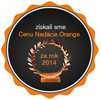If we cannot compete in innovation, let us regulate!
This was perhaps the motto for Axel Voss, the EU's copyright rapporteur, who was in charge of preparation and submission of the new European directive on copyright in the Digital Single Market.

This is possibly also one of many answers to the question: why are none of these technological giants, like Google, Facebook, Amazon and others, from Europe? A response of many American websites to another European directive – GDPR – had shown us what the next step regarding the copyright directive might be: just cut off Europeans of the above-mentioned platforms. Articles 11 (link tax) and 13 (upload filter) are not only controversial, they can effectively change the internet as we know it today as well.
The directive is a direct attack on the democratization of internet which has brought all the fruits, such as spread of information, innovation, education, and research during the last 20 years. Even the father of world wide web Tim Berners-Lee sees it is as a punch to hyperlinking - the very essence of the internet. It seems like those interest groups which are pushing this directive forward could not foresee the consequences. They are saying the platforms are getting wealthier at the „expense“ of media houses. This is a huge misconception. In fact, the platforms are decreasing transaction costs for consumers to find the information supply. Moreover, intellectual property rights cannot serve as a tool of redistribution of profits as this directive says. The socialist approach – they are big and wealthy and they can afford to share their profits with us – is the worst possible way of preparing the legislation. The aim should be justice, not rent-seeking: making one group better off on the expense of other. The new directive will constitute a big burden for smaller media houses which are dependent on traffic coming from platforms.
This step will discourage new startups, as they will not be able to afford the development of upload filters and to compete with the giants. This will decrease the EU competitiveness significantly. Let‘s hope the directive will not pass the final voting next year. There is still several months left for discussions.







